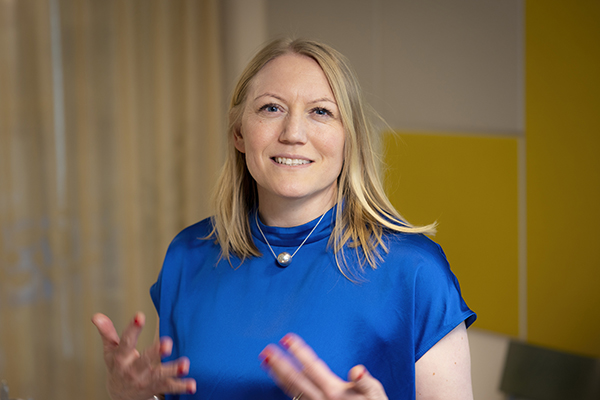First of all, what is intellectual property (IP)?
“Intellectual Property Rights (IPR) is an umbrella term for the legal protection of knowledge assets. Examples of knowledge assets are datasets, methods, models and inventions, in other words, things that are continuously created in research! Different forms of intellectual property protection include patents, trademarks, design protection and copyright.”
How can university researchers benefit from the help of an IP advisor?
“The field of intellectual property rights may seem a bit daunting, but it is important when developing an idea or utilising research results. It is our job to help the researcher navigate this field, from identifying interesting and potentially valuable knowledge assets to helping the researcher gain control over how these assets can be used.”
“Professor's privilege” gives researchers and teachers at Swedish higher education institutions the right to the research results they produce in the course of their work. What opportunities does this create?
“It allows them to have greater influence over how their results are put to use and create benefit, such as the ability to patent their results and resell the rights, or to set up their own company for commercialisation. “Professor's privilege” is an incentive to increase the utilisation of knowledge assets created in academia, but I would like to point out that the assets do not automatically benefit society just because they exist. It takes activities for this to happen. In this context, intellectual property protection or an agreement can be one of the most important activities.”
How does an IP advisor work?
“We meet with researchers and students and talk about their results and ideas to identify what is unique and could form the basis for a new solution. Here we work closely with UU Innovation’s business advisors. Then, as IP advisors, we often need to immerse ourselves in the area to be able to assess whether there are things that should be protected to strengthen the development potential of the project. We also provide advice and guidance on different forms of protection and what is an appropriate strategy in each individual project. Another important task for us is to generally share knowledge in terms of knowledge assets created in academia and how they can best be managed. We do this through activities such as lectures for doctoral students, researchers and students.”
